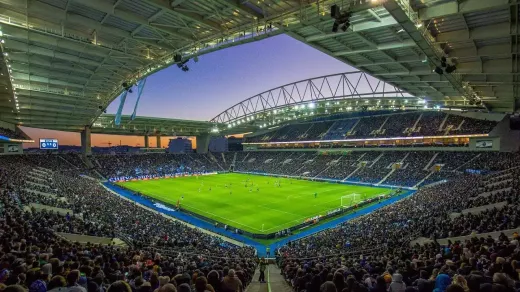Historical significance of the Europa League
The Europa League, formerly known as the UEFA Cup, has a rich history dating back to its inception in 1971. Initially established as a secondary competition for clubs that did not qualify for the Champions League, the tournament gained prominence over the years, attracting top teams from across Europe. What started as a consolation prize for clubs has now evolved into a highly competitive tournament with its own allure. The Europa League provides teams with a chance to compete against opponents of various strengths, allowing for the development of tactical skills and exposure to different playing styles. This exposure has proven to be crucial for young players aiming to make their mark on the footballing world.
Notable players who started their careers in the Europa League
The Europa League has served as a springboard for numerous players who went on to achieve greatness in their careers. One prime example is Cristiano Ronaldo, who showcased his immense talent during his time at Sporting Lisbon in the early 2000s. Ronaldo's performances in the Europa League caught the attention of Manchester United, leading to his transfer and subsequent rise to stardom. Another notable player is Antoine Griezmann, who made his name at Real Sociedad while competing in the Europa League. Griezmann's impressive displays in the tournament enabled him to secure a move to Atletico Madrid, where he further established himself as one of the world's best forwards.
Success stories of players who used the Europa League as a launchpad
The success stories of players who have utilized the Europa League as a launchpad are numerous and diverse. Erling Haaland, the Norwegian sensation, burst onto the scene with Red Bull Salzburg in the Europa League, scoring a remarkable 8 goals in his first 6 appearances in the 2019-2020 season. His performances not only helped his team progress in the tournament but also attracted the attention of top clubs, leading to his subsequent move to Borussia Dortmund. Similarly, Kylian Mbappe, now one of the most sought-after talents in world football, made his mark in the Europa League with AS Monaco. His electrifying displays at a young age propelled him onto the global stage and ultimately paved the way for his move to Paris Saint-Germain.
The impact of the Europa League on player development
The Europa League provides young players with a unique opportunity for development and growth. The intensity and competitiveness of the tournament allow them to learn valuable lessons about handling pressure, adapting to different styles of play, and performing on big occasions. The exposure to high-level competition and the chance to face established clubs from top leagues provide a steep learning curve that accelerates their progress. Additionally, the Europa League offers a platform for players to showcase their abilities to a wider audience, attracting the attention of scouts and top-tier clubs. This exposure can be transformative for young players, opening doors to new opportunities and propelling their careers to new heights.
Clubs that have benefited from the Europa League as a talent pool
Several clubs have recognized the potential of the Europa League as a talent pool and have strategically utilized the tournament to nurture young talent. One such club is Sevilla FC, who have won the Europa League a record six times since 2006. Sevilla's success can be attributed, in part, to their ability to identify and develop promising players through the tournament. The club's scouting network and coaching staff have a keen eye for talent, consistently unearthing gems who go on to contribute significantly to their success. Other clubs like Ajax, Porto, and Villarreal have also established themselves as breeding grounds for young talent, using the Europa League as a platform to showcase their players' abilities and attract attention from bigger clubs.
Strategies for clubs to utilize the Europa League to nurture young talent
Clubs can adopt various strategies to leverage the Europa League as a means to nurture young talent. One approach is to prioritize the development of young players by providing them with ample opportunities to gain experience and exposure in the tournament. This can involve fielding a mix of experienced players and promising youngsters, allowing the latter to learn from their more seasoned teammates. Additionally, clubs can invest in scouting networks to identify talented players in other teams participating in the Europa League, with the intention of signing them for the future. By actively engaging in talent acquisition and development, clubs can build a strong foundation for long-term success.
The role of scouts in identifying future stars in the Europa League
Scouts play a crucial role in identifying potential future stars in the Europa League. These astute professionals closely monitor the tournament, attending matches and analyzing player performances. They assess not only technical skills but also attributes such as attitude, work rate, and adaptability. Scouts are tasked with identifying players who possess the potential to succeed at a higher level and contribute significantly to their teams. Their expertise and keen eye for talent enable clubs to make informed decisions when it comes to player recruitment, ensuring that they acquire the best young prospects from the Europa League.
Challenges faced by players in transitioning from the Europa League to top-tier leagues
While the Europa League can serve as a launchpad for young players, transitioning from the tournament to top-tier leagues can present its own set of challenges. The step up in quality and intensity can be daunting, requiring players to adapt quickly and continue their development. The pressure to perform consistently at a higher level, both physically and mentally, can be immense. Additionally, players must adjust to new tactical systems, playing styles, and different expectations. However, with the right support system, coaching, and guidance, players can overcome these challenges and continue their upward trajectory.










